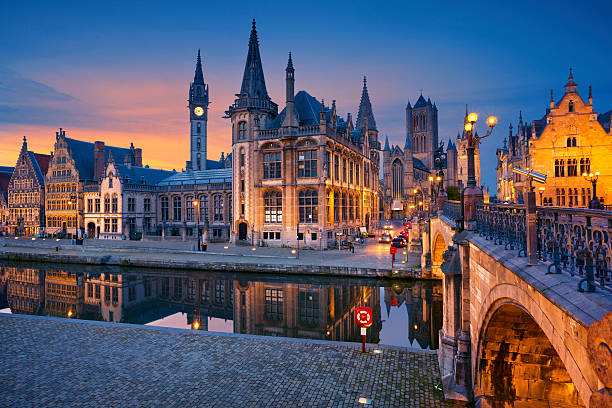
Historical and Diplomatic Ties
Belgium holds a significant place in India’s international relations, being among the first European nations to establish diplomatic ties with India following its independence in September 1947. The bilateral relationship has since strengthened, with Belgium actively supporting India’s bid for a permanent seat on the United Nations Security Council (UNSC). This diplomatic goodwill has translated into robust economic cooperation, making Belgium an important trade partner for India.
Trade Dynamics Between India and Belgium
India ranks as Belgium’s 13th largest export destination and the 16th largest importer of Belgian goods globally. Outside the European Union (EU), India stands as Belgium’s seventh-largest export destination and sixth-largest trade partner. Additionally, India is the second-largest importer of Belgian products and the fifth-largest exporter to Belgium.
A dominant feature of this trade relationship is the exchange of diamonds, which constitutes a major portion of bilateral commerce. Beyond diamonds, trade encompasses pharmaceuticals, chemicals, machinery, and food products.
India’s Exports to Belgium
In the fiscal year 2023-24 (FY24), India’s exports to Belgium amounted to $7.84 billion, slightly lower than the $8.86 billion recorded in FY23. The key commodities driving these exports include:
For the period of April-October FY25, India’s exports to Belgium reached $3.77 billion, with gems and jewellery leading at $1.08 billion, followed by iron and steel at $321.50 million.
India’s Imports from Belgium
India imported 3,360 different commodities from Belgium in FY24, totaling $7.24 billion, down from $9.17 billion in FY23. The primary imports include:
Between April-October FY25, imports from Belgium stood at $4.02 billion, with pearls and precious stones accounting for $1.24 billion and nuclear reactor parts contributing $580.79 million.
Economic Relations and Investments
Belgium is a notable investor in India, ranking as the 18th largest source of Foreign Direct Investment (FDI). From April 2000 to September 2024, Belgium’s cumulative FDI inflows into India reached $3.94 billion. Major Belgian corporations have established operations in India, while around 95 Indian companies, including prominent names from diverse sectors, operate in Belgium.
The India-Belgium Luxembourg Economic Union (BLEU) serves as a key framework for enhancing trade and economic collaboration. A landmark development in this partnership is the agreement with IMEC (Inter-university Microelectronics Centre), a Belgium-based semiconductor research organisation, to provide technical support for India’s domestic chip manufacturing ecosystem.
Recent Developments and Agreements
India and Belgium have deepened their ties through several recent agreements:
Belgium’s support for India’s membership in the Nuclear Suppliers Group (NSG) remains a pivotal milestone in bilateral relations.
The Indian Diaspora in Belgium
Belgium hosts 24,732 members of the Indian diaspora, with Hinduism emerging as the fastest-growing religion in the country. The diaspora is diverse, comprising:
1. Diamond Traders: The Gujarati community dominates Antwerp’s diamond trade, controlling nearly three-fourths of the market, succeeding earlier Israeli traders.
2. Sikh Community: Primarily settled in Limburg, Brussels, Antwerp, and Liège, many Sikhs arrived in the mid-1980s, initially as refugees with Khalistani links. Originally fruit farmers, they have since transitioned to running their own businesses.
3. ICT Professionals: Indian IT firms such as TCS, Infosys, and Mahindra Satyam have established a strong presence in Belgium. The workforce is predominantly young (aged 25-35), male, and highly educated, often holding engineering degrees. Many work on short-term assignments, preferring Indian or multinational companies for job security.
Visa and Work Permit Trends
Between 2008 and 2012, Belgium saw an average of 4,330 family visa applications annually from India. Educational visas fluctuated, peaking at 1,812 in 2010, while work visas varied significantly, with 21,500 applications in 2011.
Indian professionals in Belgium primarily obtain short-term “Work Permit B” visas, valid for 12 months and renewable. After four years, they can apply for an indefinite “Work Permit A.” However, permanent residency remains rare. Most Indian workers are highly skilled, employed in IT, engineering, and managerial roles.
Remittances from Belgium to India
In 2012, India was the largest recipient of remittances from Belgium, with migrants sending approximately $71 billion USD home. Remittance patterns, such as Jain diamond traders preferring formal banking channels contribute to hometown associations like the Antwerp Indian Association, promoting development projects in India.
Conclusion
The Indo-Belgium relationship is multifaceted, spanning trade, investment, technology, and cultural exchange. With Belgium’s strong economic ties, support for India’s global aspirations, and a vibrant Indian diaspora, the partnership is poised for further growth. The recent semiconductor collaboration and renewable energy agreements underscore the potential for deeper cooperation in emerging sectors. As both nations continue to strengthen their economic and diplomatic bonds, the future of Indo-Belgium relations appears promising.
—
Sources
– Indian Brand Equity Foundation
– Reserve Bank of India (RBI) Trade Data
– Belgian Foreign Trade Agency
©2024 SMA Legal